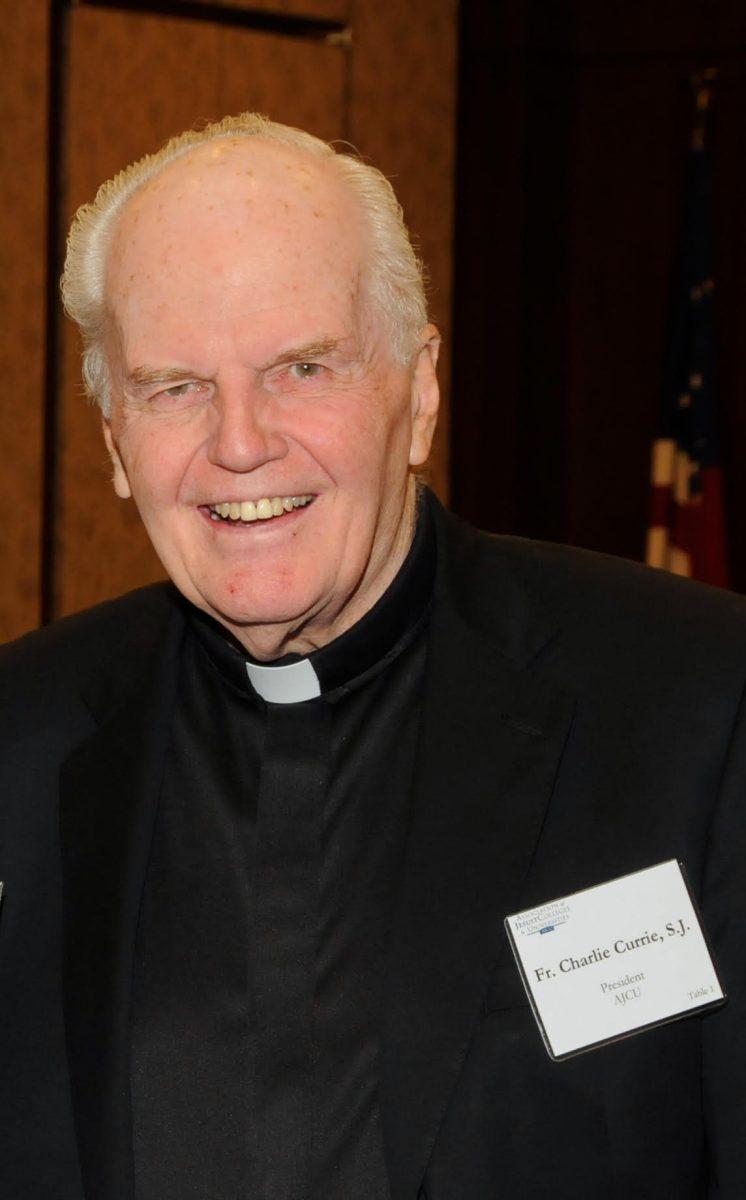Rev. Charles Currie, S.J., remembered as kind and approachable
Rev. Charles Currie, S.J., former rector of the St. Joe’s Jesuit community, died on Jan. 4 at the age of 88.
Currie, who had a background in both chemistry and theology, had already served as president of both Wheeling Jesuit University and Xavier University before coming to St. Joe’s in 1991 as the rector of the Jesuit community. He remained in the position until 1997 while also serving as an adjunct professor in the department of theology.
In addition to his work in Catholic higher education, Currie was committed to the Jesuit mission of social justice, said Dennis McNally, S.J., professor of art at St. Joe’s.
Before coming to St. Joe’s, Currie took multiple trips to El Salvador, raising U.S. awareness of the developing investigations into the 1989 murders of Jesuit priests and the political tensions in the country.
“Currie was a great believer in social community building and, as a representative of the Jesuit national office, he was influential in DC politics for justice,” McNally said. “He is greatly missed.”
Paul Aspan, Ph.D., associate provost for Academic and Faculty Support, said Currie made everyone he encountered feel welcome.
“The impression he gave off was one of someone who was genial, who was open, but he didn’t put on airs,” Aspan said. “And that’s why he was so approachable. That’s why, after he died, he received so many warm tributes, including from the Speaker of the House, Nancy Pelosi.”
To Aspan, who was chair of the theology department during Currie’s tenure at the university, Currie was a valuable mentor and friend.
“I never hesitated to call upon him,” Aspan said. “In another aspect of his mentoring me, if he thought I was screwing something up, which I would do from time to time, he would very gently but very firmly let me know, and I’m grateful that he never lost patience with correcting me, no matter how many times I screwed up.”
McNally said Currie was a kind, valued member of the Jesuit community who had been especially committed to facilitating collaboration between faculty, staff and Jesuits. Every year, Currie would throw two large house parties to strengthen that relationship.
“Mardi Gras with the Jesuits was a must-go event in his time,” McNally said, adding that “there were many more Jesuits working on campus then and we could afford a big party.”
Aspan said his favorite memory of Currie was at the 450th anniversary of the Jesuit Order in Paris, in the summer of 2006. While there, Currie, Aspan and Aspan’s wife had enjoyed a dinner on a Paris street corner together.
“I don’t remember the food, but I remember the atmosphere,” Aspan said. “And I remember that it was a wonderful conversation.”



















































